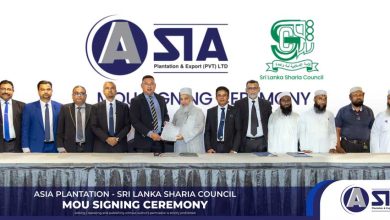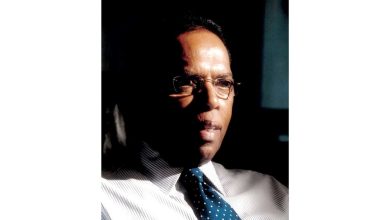EFL ISO
EFL charting a course towards a sustainable logistics industry with voluntary ISO 14064 Certification
- Increase in GHG emissions contained to 7623.55 tCO2e across 10 locations
- Commits to stringent mapping and offsetting of carbon footprint over short-medium term
Recommitting itself to effective climate action in accordance with United Nations Sustainable Development Goals (UNSDG), leading global logistics service provider Expolanka Freight (Pvt) Ltd (EFL) announced that it secured ISO 14064 Certification on Greenhouse Gas emissions (GHG).
A voluntary standard that enables companies to provide a credible and accurate measurement of its carbon footprint, the ISO 14064 Certification details principles for designing, developing, managing and reporting organization level GHG inventories including quantifying of emissions and removals.
The standard also identifies specific organizational actions that can be taken to further improve GHG management, in addition to providing guidance on quality management, reporting, internal auditing and the responsibilities for verification of reporting.
“As a leading player in the global logistics industry, EFL is acutely aware of the fact that on average, our industry tends towards a larger carbon footprint that others in the services sector. This dynamic represents the next frontier in terms of how logistics providers must adapt to serve the global climate agenda.
“EFL’s second voluntary ISO certification in this field therefore represents a clear acknowledgement of our current GHG emissions, as well as a firm commitment on our part to exploring every feasible option to reduce our carbon footprint and lead the way towards a sustainable future for all,” EFL Sustainability Lead, Sabrina Yusoof stated.
In total, EFL recorded GHG emissions of 7623.55 tCO2e across all its 10 operational locations across the country during the fiscal year ended March 2018, as compared with 7314.63 tCO2e in 2017. This marginal increase was largely attributable to an increase in Scope 3 emissions – parallel to a continuing expansion in the breadth of EFL’s operations over the course of 2018.
The GHG Protocol Corporate Standard classifies a company’s GHG emissions into three ‘scopes’. Scope 1 emissions are direct emissions from owned or controlled sources. Scope 2 emissions are indirect emissions from the generation of purchased energy. Scope 3 emissions indicate all indirect emissions (not included in Scope 2) that occur in the value chain of the reporting company, including both upstream and downstream emissions.
Globally the majority of emissions generated by the logistics industry are comprised of carbon dioxide, given that almost 95% of the world’s transportation energy is estimated to be powered by petroleum-based fuels – mainly gasoline and diesel.
EFL (Expolanka Freight) is a leading provider of supply chain solutions across 18 countries and over 60 cities. Founded in 1982, EFL is headquartered in Sri Lanka and is ranked among the top five forwarders in the Indian Subcontinent and recognized as an expert in fashion logistic
EFL is a member of Expolanka PLC – a leading conglomerate with interests in Logistics, Leisure and Investments. The company has thrived on overcoming the challenges of operating in limited logistic infrastructure markets, taking its operations to 18 countries, 60+ offices and over 2,300 staff around the world.






